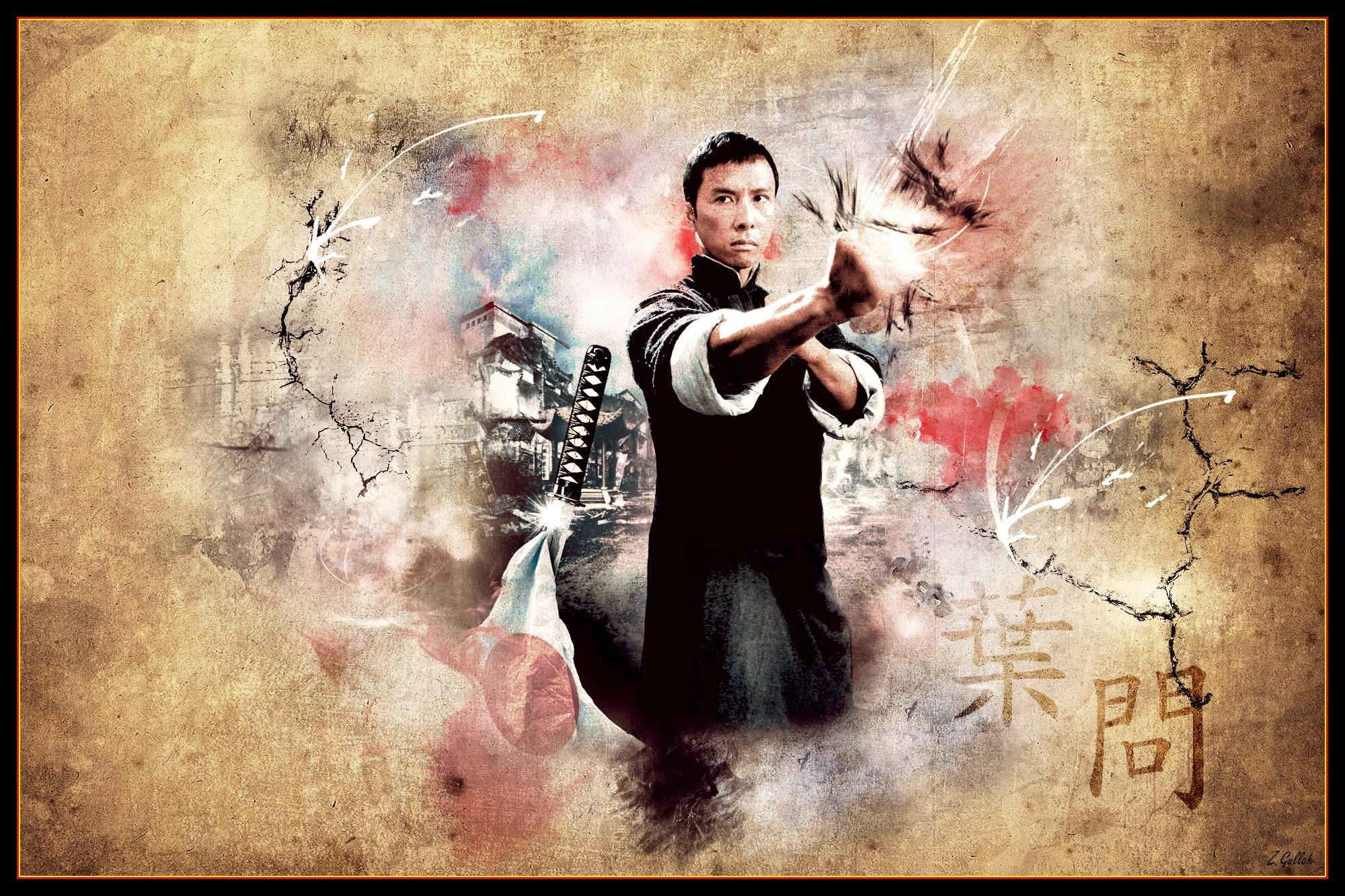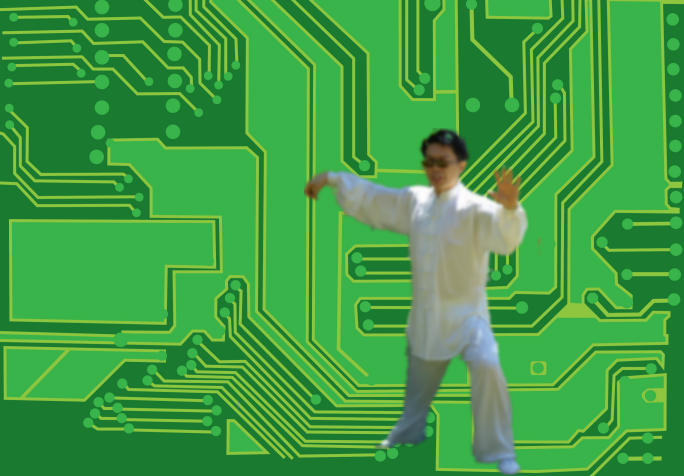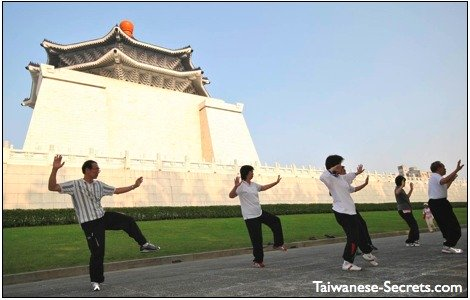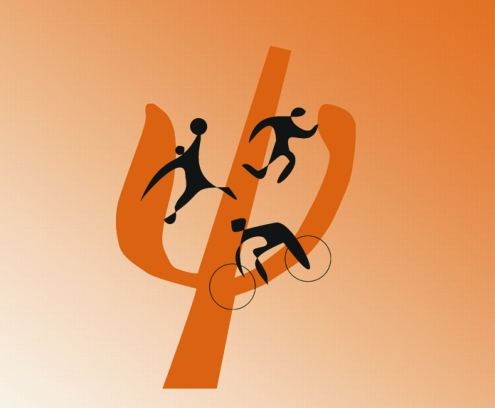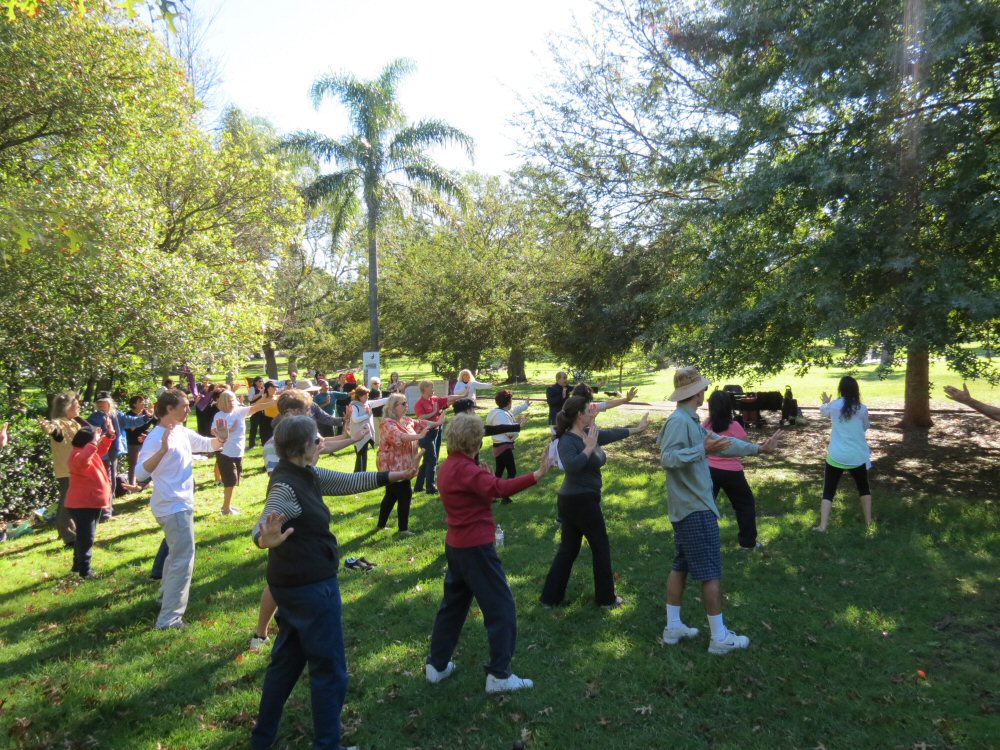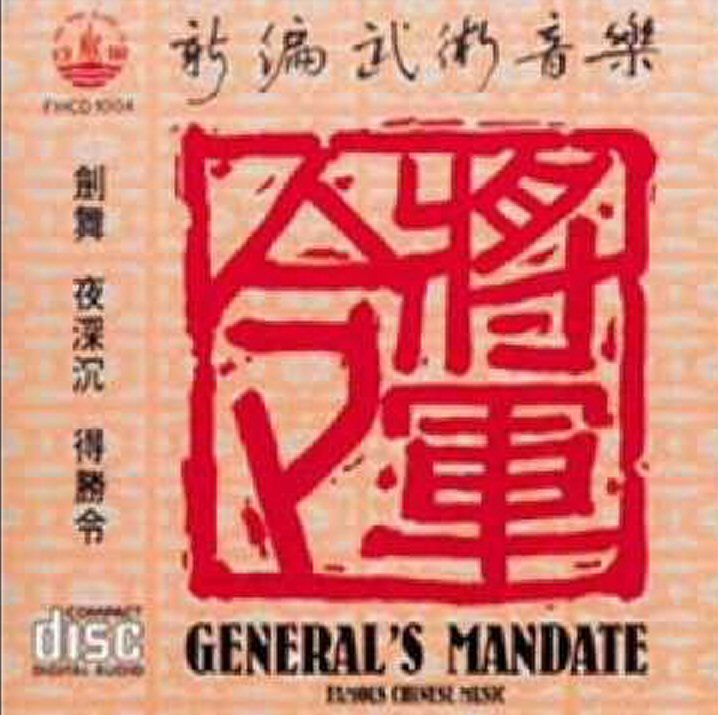admin
Comments are off
by Brian Corless The aim of this article is to let the Australian Tai Chi community know about the need for more people in Australia to become more physically active and to ask for your help with ideas and suggestions about getting more people involved in Tai Chi. In 2018 the United Nations World Health Organisation (WHO) released its Global Action Plan for Physical Activity (2018-2030) with the slogan “Let’s Be Active: Everyone, Everywhere, Everyday”. Australia is one of 168 countries that signed up for the Global Action Plan and agreed to develop ways to promote more physical activity with
admin
Comments are off
Celebrity Studies Stevey Richards 11 April 2019 Abstract Mainland China’s rejection of various traditional institutions and the Maoist political doctrine in the period following Chairman Mao’s death in 1976 resulted in ideological disorientation. To address this, the Chinese government has begun to promote traditional martial arts as a practice and as a cultural object to foster a renewed sense of national identity. However, this process of ideological fortification is complicated by Chinese martial arts’ connection to the country’s imperial system, which collapsed in the face of colonial aggression at the end of the 19th century. This article will explore how Chinese
admin
Comments are off
Sport in Society Yang Zhang, Jessica W. Chin, Shirley H.M. Reekie 22 December 2018 Abstract Within the Chinese national sport system, the government provides resources and funding to train athletes from a young age to become high-performance competitors. Though athletes are well supported to excel in their sport, during their years of intense physical training, athletes generally receive little to no formal education to prepare them for life outside of sport. The sacrifice of forgoing formal education to compete in elite level sport is not uncommon for athletes within centralized sporting systems and has been widely documented; however, there is
admin
Comments are off
International Journal of Human–Computer Interaction Aouaidjia Kamel, Bowen Liu, Ping Li & Bin Sheng 13 November 2018 Abstract In this article, we propose a Tai Chi training system based on pose estimation using Convolutional Neural Networks (CNNs) called iTai-Chi. Our system aims to overcome the disadvantages of insufficient accurate feedback in traditional teaching methods such as one-to-many tutorial and video watching. With the specially trained neural network, our iTai-Chi system can estimate learners’ poses more accurately compared to Kinect V2. In our system, user’s motion is evaluated through comparison with the template motion. The evaluated results are presented to the
admin
Comments are off
The International Journal of the History of Sport Ling-Mei Ko, Meng-Chi Ting & Ping-Chao Lee 1 October 2018 Abstract In Taiwan, the historical development of traditional Chinese martial arts, or kuoshu and wushu as they are called today, has been quite diverse. This paper examines the development of Chinese martial arts from 1949 to 2017 in the context of Taiwan based on available historical evidence and in-depth interviews. The results show that there were three major historical periods in the development of Chinese martial arts. The foundation period was inaugurated when Chinese martial artists fled to Taiwan with the Nationalists.
admin
Comments are off
American Journal of Clinical Hypnosis Bruce Eads & David M. Wark 27 Sep 2018 Abstract Alert hypnosis has a growing body of evidence to support its use in resolving trauma symptoms. There is also research to support the use of Tai Chi in the treatment of post-traumatic stress disorder (PTSD). Integrating alert hypnosis with Tai Chi movements offers the potential to further the benefits of both approaches. Patients have an opportunity to work toward their desired goals using hypnotic techniques to embody targeted changes both in session and outside the office. Providers get behavioural information about the physical and emotional
admin
Comments are off
International Journal of Sport and Exercise Psychology Takashi Shimazaki et al 11 September 2018 Abstract In cross-sectional studies, we examined the long-term practice effects of QiGong exercise on perceived health and quality of life (QoL) in middle-aged (over 50 years) Japanese individuals. In Study 1, Japanese adults (n = 320) who practised QiGong responded to a questionnaire concerning the perceived benefits of QiGong practice and QoL. In Study 2, we collected data from QiGong participants who attended a QiGongconference (n = 799). Participants in Study 1 perceived that QiGong affords physical, psychological, and social benefits and QiGong duration in years correlated strongly with QoL. In
admin
Comments are off
As an ancient Chinese practice, tai chi may seem foreign and even intimidating. Perhaps your only experience with tai chi is watching video clips or seeing photos of large groups of Chinese people doing tai chi in parks—a rare occurrence in the United States. Only about 1% of the U.S. population, or about 3.65 million Americans, reported doing tai chi in 2015. That means a lot of Americans are missing out on myriad benefits that tai chi has to offer. The goal of this report is to make tai chi more familiar, more accessible, and easy to practice regularly—even right
admin
Comments are off
by Brian Corless In the March, 2017 edition of the Tai Chi Association of Australia newsletter I wrote about the benefits of tai chi chuan for mental health and commented on published survey data from the USA by Dr. Romy Lauche* and colleagues (2016) which highlighted differences in U.S. participation rates between yoga and tai chi. At the time I noted that similar rates on participation for tai chi in Australia were difficult to obtain as the Australian Bureau of Statistics (ABS), in its Participation in Sport and Physical Activity report of 2012, grouped participation data for “Tai Chi” under
admin
Comments are off
Ethnomusicology Forum Colin P. McGuire Published online: 04 May 2018 Abstract Wong Fei-hung was a Cantonese martial arts master from southern China who became associated with a melody called ‘General’s Ode’. Since the 1950s, over 100 Hong Kong movies and television shows have forged the link by using this melody as Master Wong’s theme. During fieldwork in a Chinese Canadian kung fu club, I observed several consultants claiming this piece as a Cantonese national anthem—a hymn for a nation without a sovereign state. Virtual ethnography conducted online showed that this opinion is held more widely, but that the piece also inspires broader Chinese



